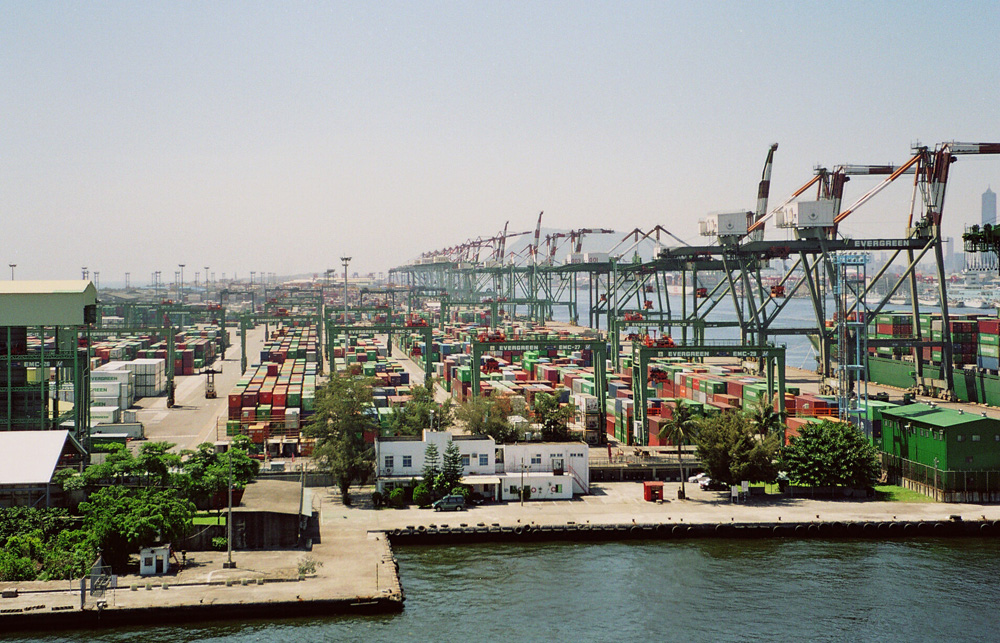by Brian Hioe
語言:
English
Photo Credit: Fcuk1203/WikiCommons/CC BY-SA 3.0
EIGHT INDONESIAN sailors have been stranded on a ship since February in the Kaohsiung Port. The eight sailors have not been allowed to enter Taiwan due to COVID-19 measures and have not received pay for over six months.
The eight sailors work on a cargo ship registered to Togo, which is operated by a Hong Kong company. The ship was towed into the Kaohsiung Port after it lost power on February 23rd near Taiwan.
In particular, the eight men are unable to enter Taiwan due to border regulations and COVID-19 measures and have more or less been abandoned by their employer, having not been paid for half a year. While the Taiwanese government has not allowed them in, government bureaus and a local priest with the Stella Maris organization have sought to provide the sailors with food and supplies. To this extent, one notes that after having been in Taiwan for over six months, it would be unlikely that any of the sailors would still have COVID-19.
Taiwan has some unusual cases in which foreigners were physically present in Taiwan but not allowed to enter. In 2019, two Chinese asylum seekers stayed for over one hundred days in Taoyuan International Airport before they were allowed to enter Taiwan. The Taiwanese government refused to let them enter, despite that both had histories of activism that others could attest to.
The two stayed in an airport lounge, fearing imprisonment or worse if they were made to return to China. There have been cases of Chinese citizens that were not allowed to enter, were turned back, and disappeared if they were made to return to China.
 Photo credit: Public Domain
Photo credit: Public Domain
This is not even the only case in recent memory involving Indonesian sailors that were unable to enter Taiwan because of border restrictions and regulations. Last August, 105 Indonesian sailors returned home by plane after being stranded at sea for close to half a year.
The sailors were unable to enter Taiwan because of border restrictions that prevent merchant vessels registered to a different country from docking in Taiwan, only allowing ships owned by Taiwanese nationals and registered to Taiwan to dock. Likewise, maritime conventions dictate that it is the responsibility of the owner of a vessel, the nation to which the vessel is registered, and the nation to which the sailors come from to provide for repatriations.
Due to this legal bind, the sailors were unable to return home for over a year, having already been at sea for some time before they wound up in Taiwan. It is probable that there are other cases of migrant workers at sea prevented from entering Taiwan during the COVID-19 pandemic, caught in the tricky legal bind of being unable to enter Taiwan but having nowhere else to go.
Yet the issue is not, in fact, exclusive to Taiwan. The phenomenon of sailors being stranded on vessels for months, even years at a time is known as seafarer abandonment.
In 2021, sailors aboard a Taiwanese-operated shipping container ship that became stuck in the Suez Canal were stranded on board their vessel in a similar manner. Before the 105 Indonesian sailors repatriated in 2021, Taiwan saw six cases of seafarer abandonment since 2016. Four were eventually resolved, but as of August 2021, a Belize-registered cargo ship has been stuck in the Port of Taipei since October 2019 and a Sierra Leone-registered cargo ship has been stuck in Changhua County since December 2019. The phenomenon of seafarer abandonment is relatively unknown, whether in Taiwan or other parts of the world.
Either way, seafarer abandonment dovetails with poor treatment of migrant workers in Taiwan, particularly individuals working on the high seas such as migrant fishermen, Workplace abuse can occur on the high seas because of the fact that there proves little way to regulate how boat captains treat their workers and migrant workers themselves often lack cell phone signal in order to report abuses. Even if they were able to, they might face physical retaliation, even fatal, from boat captains.
Advocates for the eight stranded Indonesian sailors have called for their assistance and for measures to be taken for their repatriation. Without corresponding public outrage, this is unlikely to happen. Nevertheless, ultimately the incident points to a larger systematic issue at hand.

